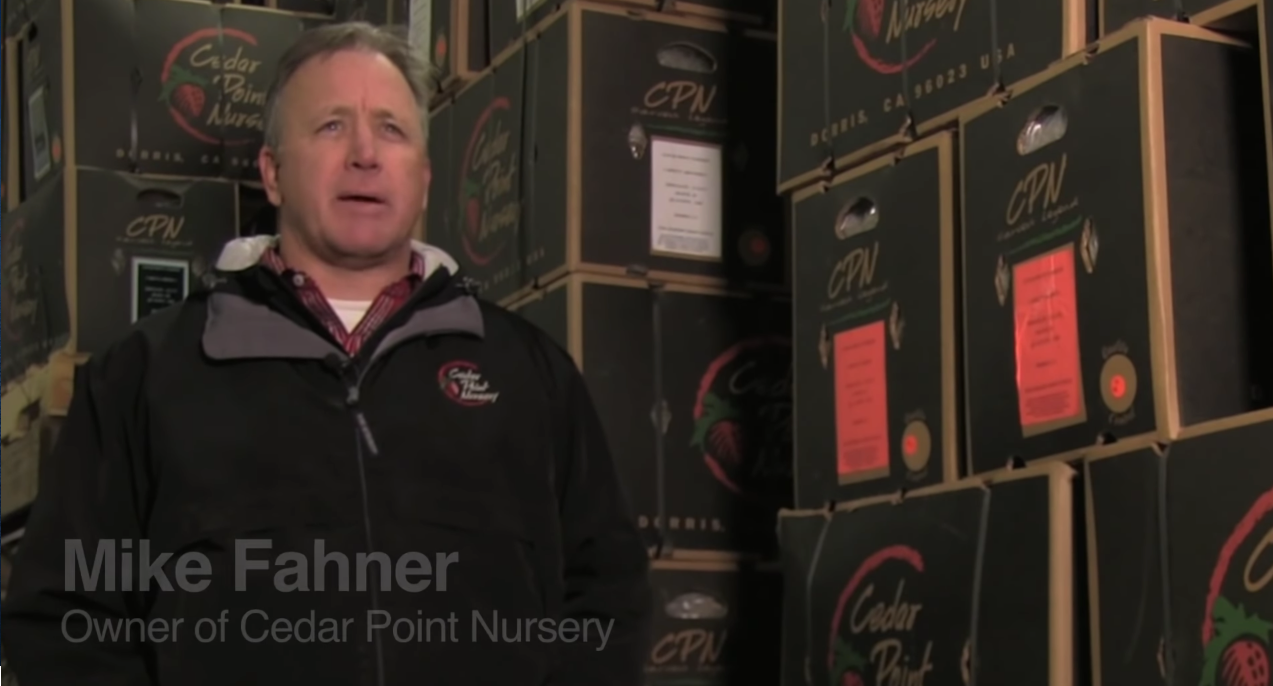WASHINGTON (CN) — Two fruit growers waged an uphill battle Monday at the Supreme Court in their challenge of a California law that gives union representatives three hours a day, 120 days a year, to organize farmworkers on the farm's own property.
At oral arguments in Washington — held remotely still due to the Covid-19 pandemic — several justices questioned a lawyer for the farms to differentiate such intrusions from other access that the government permits for various activities.
“FDA licensing regimes and inspections can be justified as legitimate exercises of conditions of the government in permitting a company to enter the pharmaceutical market," Chief Justice John Roberts asked, referring to the Food and Drug Administration. "Why doesn't that rationale apply to your entry into the agricultural market?”
Joshua Thompson, who represents strawberry grower Cedar Point Nursery and citrus and grape grower Fowler Packing Co., wants the court to treat labor-related entries as a violation of the Fifth Amendment right against government-imposed takings. An attorney with the Pacific Legal Foundation, he argued Monday that the right to enter agriculture is not something that the government can “hold hostage.”
"It's not something that can be conditioned,” Thompson said.
California Solicitor General Michael Mongan told the justices Monday that the law was designed to minimize incursion on property rights.
“The regulation authorizes only a limited number of organizers to enter petitioners’ farms for the sole purpose of speaking with employees at non-work time during certain periods of the year for no more than three hours a day and subject to detailed restriction,” Mongan explained.
He emphasized the case is a straightforward one.
“The only question before the court is whether that regulation is a ‘per se’ taking, and the answer is ‘No,’” Mongan said.
“Petitioners can't credibly claim that the board's regulation destroys all their rights to any part of their property, or that it's the functional equivalent of the government taking over their farm,” Mongan continued.
In questioning the state official, Justice Samuel Alito asked if the government taking an easement of a property owner’s land so that people in a beach town can walk over somebody's property to get to a public beach would be a per se taking. Mongan affirmed.
“Suppose it doesn't apply 365 days a year," Alito continued. "Suppose it's 364 days a year. Suppose it's 264 days a year. Suppose it's only on Memorial Day, Fourth of July and Labor Day weekends — is it a different answer?”
“I think that those would be taken under any standard,” Mongan said. “But we should not adopt a broad per se rule that applies to the different types of regulatory regime that we have here and the many types of assets regulations that look nothing like an easement.”

Thompson attempted meanwhile to fend off other examples where the government requires inspections, such as for power plants and mining.
“Those are limitations on your property right in common law, you do not have the right to deny the government to come on your property to search,” Thompson said in reply to Justice Sonia Sotomayor.
Justice Stephen Breyer also theorized Monday whether the union organizers could be considered to be “searching for [poor working] conditions,” or “searching to see whether [workers] would like to belong to a union.”
“It's the searching power, not the thing that they're searching that matters,” Thompson said.
The lawyer for the farms also argued Monday about the categorical duty for compensation that access to the farm triggers.
“If the access easement taken by the board is so valuable to it, it can simply pay the businesses, the value of that easement,” Thompson said.
Barrett questioned Mangan why the state can’t just ask the union to pay compensation.
“Why would it be that big of a deal for California to say to the union: ‘Listen, to compensate for the taking, if you want access, you pay’?” she asked
“It would be a big deal because then you'd be dipping past the considerations as to the severity of the burden [and] the nature of the action that inform[s] the Fifth Amendment analysis, and that wouldn't be as straightforward as my friend suggests,” Mangan said. “You'd have to apply a multitude of complex exceptions before you get to determining whether compensation would be required.”
Farms that bar access to union organizers face enforcement from California's Agricultural Labor Relations Board.
“When workers have information about their basic labor rights and are able to organize, they earn higher wages and have better and safer working conditions, which are especially crucial for essential farmworkers,” the board's chair Victoria Hassid said in a statement last week. "This benefits all Californians, who rely on farmworkers to get food to their markets and on their tables.
In a blog post on its website this weekend, Pacific Legal described a protest during the 2015 harvest season that led the farms to sue. “Time was stolen from Cedar Point employees when a group of uninvited activists from the United Farm Workers union barged onto the nursery’s property waving flags, blasting bullhorns, and yelling at ... employees urging them to unionize," the lawyers wrote.
Cedar Point and Fowler Packing brought the suit against four members of the Agricultural Labor Relations Board in 2016. In 2019, the Ninth Circuit affirmed dismissal of the case.
Subscribe to Closing Arguments
Sign up for new weekly newsletter Closing Arguments to get the latest about ongoing trials, major litigation and hot cases and rulings in courthouses around the U.S. and the world.








